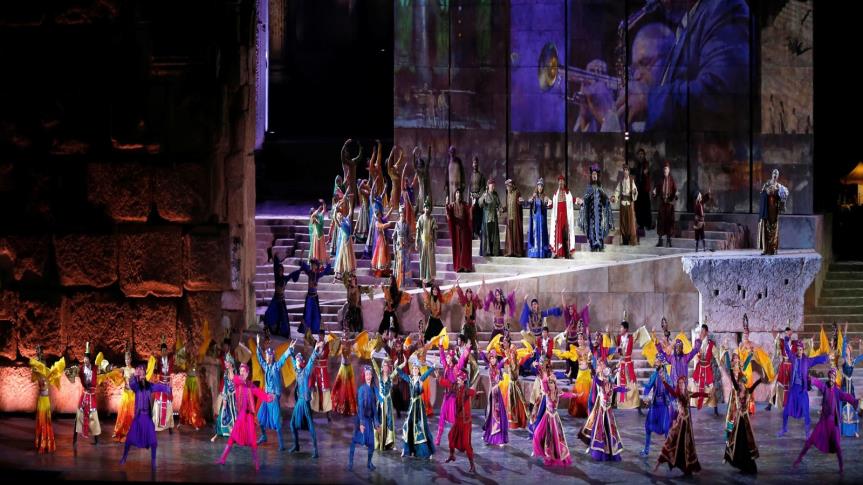The attributive adjective, النَّعْتُ
النَّعْتُ is an attributive adjective that comes after a noun الْمَنْعُوتُ to describe it by specifying some of its attributes.
The attributive adjective agrees with the noun it describes in the following:
Declension: it is declined in the same way as the noun it qualifies (nominative, accusative or genitive): Ex. : تُقَدِّمُ النُّسْخَةُ الْجَدِيدَةُ مَجْمُوعَةً مُتَنَوِّعَةً مِنْ الْفَنَّانِينَ اللُّبْنَانِيِّينَ وَالْعَرَبِ (The new edition offers a variety of Lebanese and Arab artists)
Definiteness and indefiniteness: it is in the definite form if the noun it describes is in the definite form, it is in the definite form as well. Ex.: مِهْرَجَانٌ غِنَائِيٌّ / الْمِهْرَجَانُ الْغِنَائِيُّ (A lyrical festival / The lyrical festival)
Gender: it is most of the time in the masculine form if the noun it describes is masculine and in the feminine form if the noun it describes is feminine. Ex.: فَنَّانٌ لُبْنَانِيٌّ / فَنَّانَةٌ لبنانِيَّةٌ (a Lebanese Artist / a Lebanese (female) Artist)
Number: the attributive adjective, agrees –most of the time- with the noun it describes in the singularity, duality and plurality.
Ex.: فَنَّانٌ بَارِزٌ / فَنَّانَانِ بَارِزَانِ / فَنَّانُونَ بَارِزُون (famous artist(s))
Note: if the qualified noun is a non-human plural, جَمْعٌ لِغَيْرِ الْعَاقِلِ, the adjective remains in the singular feminine form. Ex.: مَعَابِدُ رُومَانِيَّةٌ (Roman temples)
